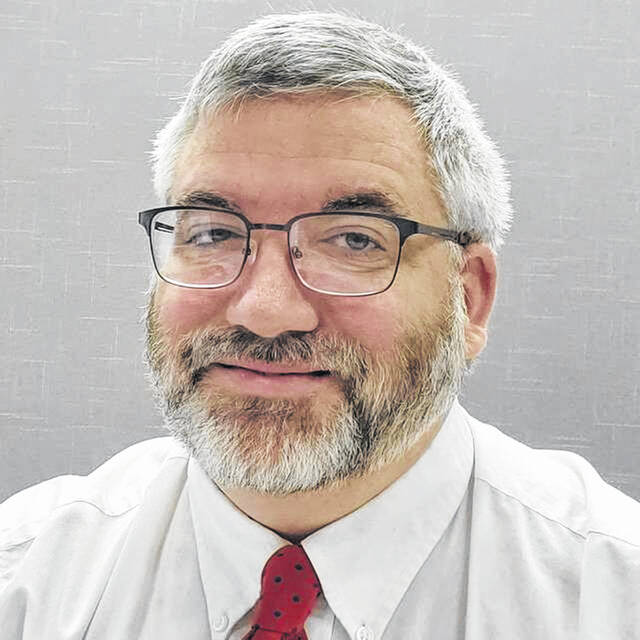
It’s 20 years later, but Dr. David Lamont describes it as vividly as if it happened yesterday.
The Bath High School graduate was 27 and working in New York City on Sept. 11, 2001, about a third of his way through his medical residency program and working at an orthopedic clinic in the Upper East Side of Manhattan that morning.
After the second plane hit a World Trade Center tower, his program director summoned him to help with the wounded at a Brooklyn hospital. Heavy traffic kept his bus from getting there. He tried the subway, but that stopped too, telling passengers to get off and find another way to travel for their safety. When he emerged from the subway, he saw where the towers should’ve been.
“I could see where the one tower had already fallen, and the second one was burning,” Lamont said. “People had stopped whatever they were doing and were kind of watching the second tower burning.”
Before long, it changed from watching a fire to watching a catastrophe for Lamont, who now works as an emergency room physician in Cincinnati.
“Then the building just collapsed. If you’ve ever seen the video, it was just like it was there, and it just started crumbling, right straight down,” he said. “It wasn’t like falling over, it was like it imploded. Smoke and debris and everything started billowing down the street.”
That’s when he realized he had to help, in the midst of car alarms going off from the explosions, the chaos of those injured and trouble getting a cell signal to let his parents know he was OK.
“A lot of walking wounded, you might say, were really dirty with cuts and bleeding from different places, screaming, crying,” he said. “So as a doctor, my instinct was to go towards where the building had collapsed to see if I can help anyone.”
Eventually, he hopped aboard an ambulance as he tried to walk across the Brooklyn Bridge.
“I hitched a ride with them back to my hospital, and when I got there, it was empty. There were no patients in there. Anybody that wasn’t like deathly ill was not going to the hospital. Unfortunately, what we all came to find out later is that there really weren’t many survivors.”
That’s when Lamont’s mission on Sept. 11 changed. Instead of helping people hurt in the collapse of the twin towers, he helped those hurt trying to rescue those people.
“We ended up taking care of a lot of first responders because people got injured trying to rescue people, walking among the debris. It was like a huge pile of shrapnel, metal, sharp broken glass and everything.”
That mission continued the following days. Pulled away from his shifts at the orthopedic clinic, he helped set up a makeshift clinic at a Burger King restaurant near the World Trade Center, coordinating with firefighters and other first responders.
“The people I took care of were firemen with cuts and debris in their eyes. I was washing out a lot of people’s eyes. I would give breathing treatments to people who had reactive airway disease, like asthma or emphysema. I even took care of some dogs, first responder-type dogs looking for survivors.”
That, too, was temporary. That structure was deemed unsafe, so they moved the clinic down the street to another building, setting up in a bank.
“All the firemen we could gather together made a big line to move all the supplies,” he said. “They would line up, and supplies would be passed from one to the next to the next.”
The experience only confirmed what Lamont already knew, that he wanted to be an emergency room physician. In those 20 years since, he’s been reminded time and again about the fragility of life.
“I appreciate every moment. You have to enjoy every day that you have,” he said. “Some of that just comes with being an emergency physician in general because you see so many people that they come in with something, and then we have to tell them terrible news, like they have cancer, or we’re going to need surgery.”
He also realized how different America was after the attacks.
“You just never really thought anything terrible like this would happen. On Sept. 11, you realized it could,” he said. “It kind of took a little bit of the idea that we’re safe and that you really need to be aware of your surroundings everywhere you go, at all times. It kind of put you on a heightened alertness, I guess.”
David Trinko is managing editor of The Lima New, a division of AIM Media Midwest. Reach him at 567-242-0467, by email at [email protected] or on Twitter @Lima_Trinko.


